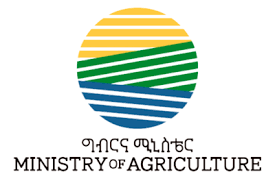
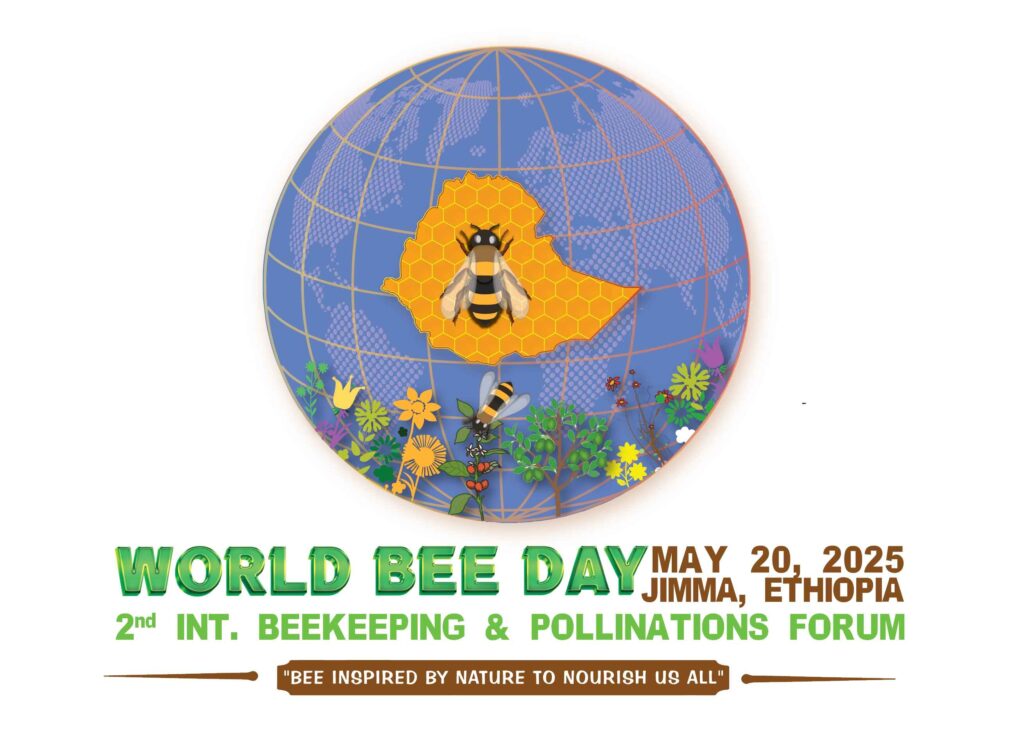
Second International Forum for Action on
Sustainable Beekeeping and Pollination
Jimma (Ethiopia), 20/05/2025 - 22/05/2025
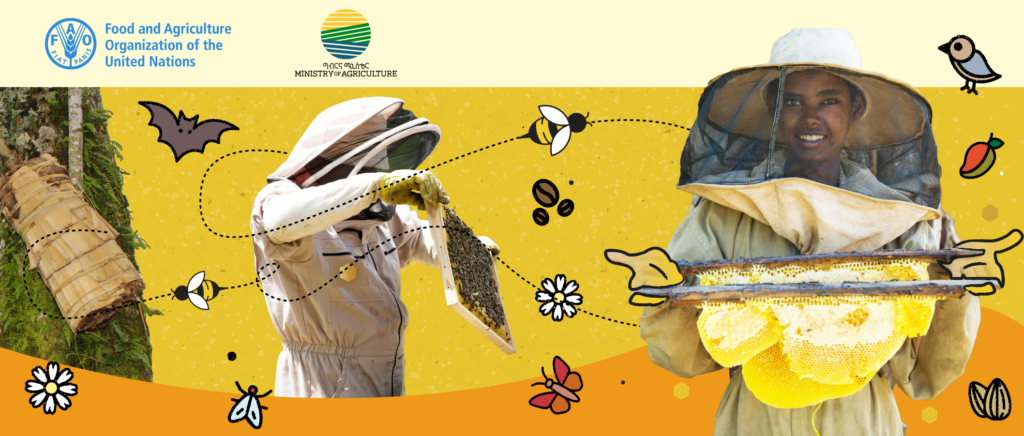
Bees and other pollinators are essential to food production, food security, and the economy, while also supporting human and ecosystem health. Their vital contributions span all three dimensions of sustainable development—economic, social, and environmental—enhancing both quality of life and long-term ecosystem health. Approximately 75 percent of the world’s top crop types producing fruits and seeds for human use depend at least partially on pollinators. Without pollinators, 5 to 8 percent of current global crop production would be lost, representing an annual market value of USD 235–577 billion. Despite the acknowledgement of their importance, many pollinator species worldwide are declining and at risk of extinction due to various pressures.
Social bees and beekeeping support the livelihoods of small and large-scale beekeepers, rural communities and Indigenous Peoples, contributing to honey production, food production, cultural heritage, and inspiration, ultimately fostering sustainable development. Since beekeeping can be practiced with locally available materials and minimal resources, it also creates income opportunities for vulnerable groups, including women, youth, and people in extreme poverty.
Recognizing the critical importance of bees and pollinators, the Government of Ethiopia, the Government of Slovenia, the Food and Agriculture Organization of the United Nations (FAO) with the support of the United Nations Industrial Development Organization (UNIDO) and Apimondia, will organize the second International Forum on Sustainable Beekeeping, from 20 to 22 May 2025 in Jimma Town, Ethiopia. This annual event brings together governments and policymakers, scientists and knowledge holders, private sector, practitioners, non-governmental organizations and civil society to foster international cooperation on beekeeping and pollination, ensuring that policies and practices keep pace with evolving challenges and opportunities.
Taking place alongside World Bee Day 2025 the Forum serves as an opportunity to exchange experiences, showcase innovative beekeeping initiatives, inspire action for pollinator-friendly agriculture and global coordination and conservation efforts. Although global in scope, the Forum highlights a specific region each year. In 2025, the focus will be on Africa, with Ethiopia serving as the host country.
Stay tuned for more details on the agenda, speakers, and how to participate in this global call to action for sustainable beekeeping practices and pollinator conservation.
Field Site Visits
Site 1 :- Mr. Girma and His Family – Fruit and Honey Production Farm
Farmer Girma’s Buzzing Success: Where Honey Meets Avocados
In the serene hills of rural Ethiopia, where the soil is rich and the sun generously kisses the land,
something extraordinary is unfolding on a modest 2.5-hectare farm. Here, Farmer Girma Assefa
has quietly built a model of modern sustainable agriculture one that’s not only profitable but
also deeply connected to nature’s rhythms.
What sets Girma's farm apart is not only the exceptional quality of his produce but the balance in
which it thrives. At first, the farm may appear like any other with rows of avocado trees,
vegetable plots, and the occasional flutter of papaya leaves. However, if you listen carefully, you’ll
catch the subtle buzz of change. That hum? It's the sound of bees dozens of hives buzzing away
across the land.
Girma’s journey didn’t start with hives or golden honey harvests. It began, like many farming
stories, with small steps growing vegetables and papayas, learning the land, and observing the
seasons. Early on, however, he recognized an opportunity in beekeeping. Not for profit at first,
but for the potential it held. Bees, he understood, weren’t just honey producers they were
essential partners in crop health and productivity.
He started small, with just a few hives. As his understanding of pollination deepened, so did his
commitment. He invested in expanding his beekeeping operation not just to produce more
honey, but to enhance his avocado yields. Over time, he built up to 63 hives, with 40 actively
buzzing throughout his farm.
The impact was profound.
Pollination, often overlooked, became Girma’s secret weapon. With the bees aiding fertilization,
his avocado trees began to yield larger, healthier, and more consistent fruit. Encouraged by the
results, Girma increased the number of active colonies to 60. The payoff? A dramatic
improvement in both honey yield 20 to 25 kilograms per hive and fruit quality. Today, his
avocados meet international export standards, and his honey is sought after for its purity and
richness.
But Girma’s success isn’t just about numbers. It’s about a mindset. It’s about understanding that
farming isn’t only about planting and harvesting it’s about ecosystems. About working with
nature, not against it. Bees don’t just serve the hive; they serve the farm. They serve the future.
Today, Girma’s farm is a living model of agroecological harmony, inspiring other farmers with the
power of integrated practices. It’s a story of innovation rooted in tradition a farmer who looked
beyond immediate gains to embrace a long-term vision of sustainability and abundance.
"Nature’s Partnership in Action: One Farm, Two Golden Harvests."
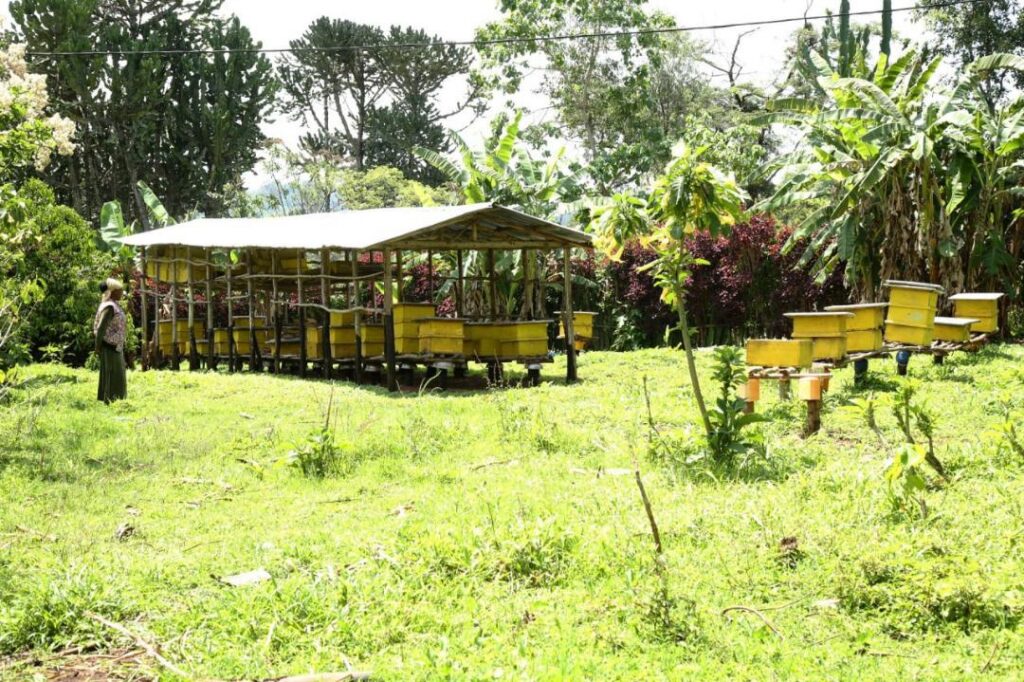
Site 2:- Center for Selected Coffee Seed Propagation and Honey Production
Where Nature Nurtures Prosperity: The Story of a Farm That Grows More Than Crops
In a quiet corner of the district, where the landscape whispers potential, lies a one-hectare plot
that is doing more than just growing crops it is redefining the role of nature in agriculture. The
Center for Selected Coffee Seed Propagation and Honey Production is not just a farm; it's a living
testament to how pollination can be the most powerful tool for productivity.
For seven years, under the guidance of the Woreda administration, this center has cultivated a
prized variety of coffee known for its superior flavor and strong market demand. But behind its
success is not just good soil or skilled hands it’s the invisible force of bees, quietly transforming
every flower they touch into a promise of abundance.
Eighty buzzing beehives form the backbone of the farm’s ecosystem. These bees are more than
honey producers, they are nature’s most efficient pollinators, and their presence is the secret to
the center’s thriving yields. As they move from coffee blossom to blossom, the bees trigger
natural fertilization. This process, known as cross-pollination, significantly increases fruit set,
improves bean size and uniformity, and accelerates ripening.
Without bees, the coffee trees would struggle to reach their full potential. With them, the center
produces between 1,800 and 3,500 kilograms of premium coffee per year an extraordinary
output from just a single hectare. The boost in quality and quantity is a direct result of effective
pollination, proving that when bees thrive, crops flourish.
And the benefits don’t stop at the beans. Twice a year, the farm also harvests pure, organic
honey up to 30 kilograms per hive turning pollination into a double blessing: increased
agricultural production and an added stream of income.
This center is more than productive it's instructive. It trains local farmers not only in seed
propagation and cultivation but in apiculture as a strategy to boost their own farm yields. By
showing that beekeeping isn’t just a side business but a cornerstone of agricultural success, the
center is helping to build a new mindset one where farmers see bees not as insects, but as
partners.
In every hive buzzing and every blossom pollinated, this center shows that the path to food
security and economic resilience begins with understanding pollination. Bees are not just part of
the process they are the solution.
This is a place where pollination powers prosperity, where bees and beans grow together in
harmony, and where one small insect is making a big difference—one flower, one hive, one
harvest at a time.
“Rooted in Coffee, Sustained by Bees”
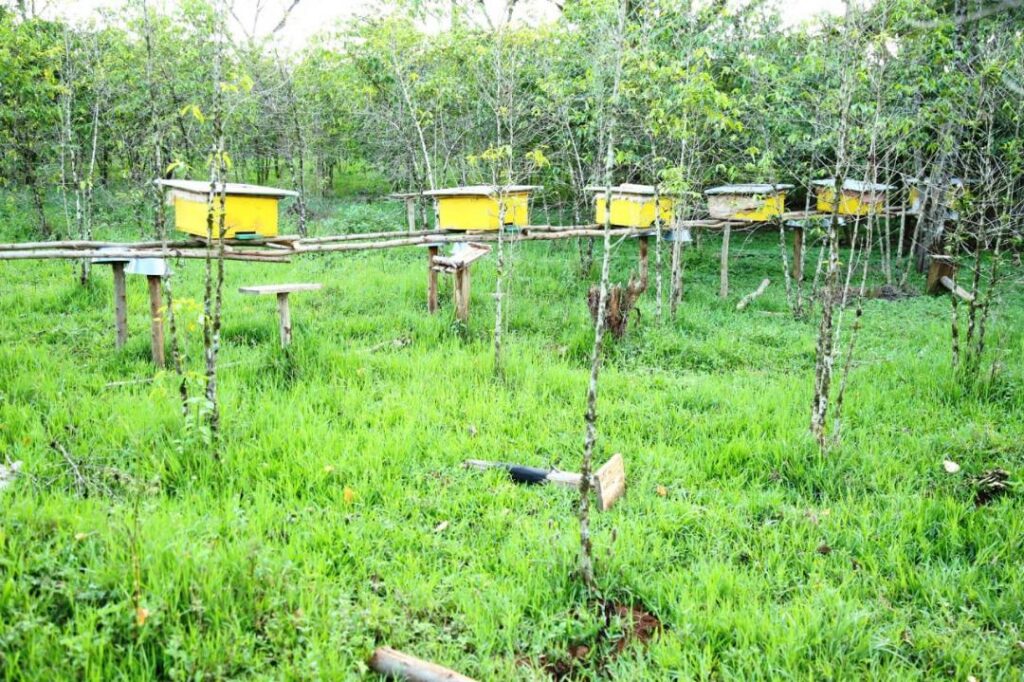
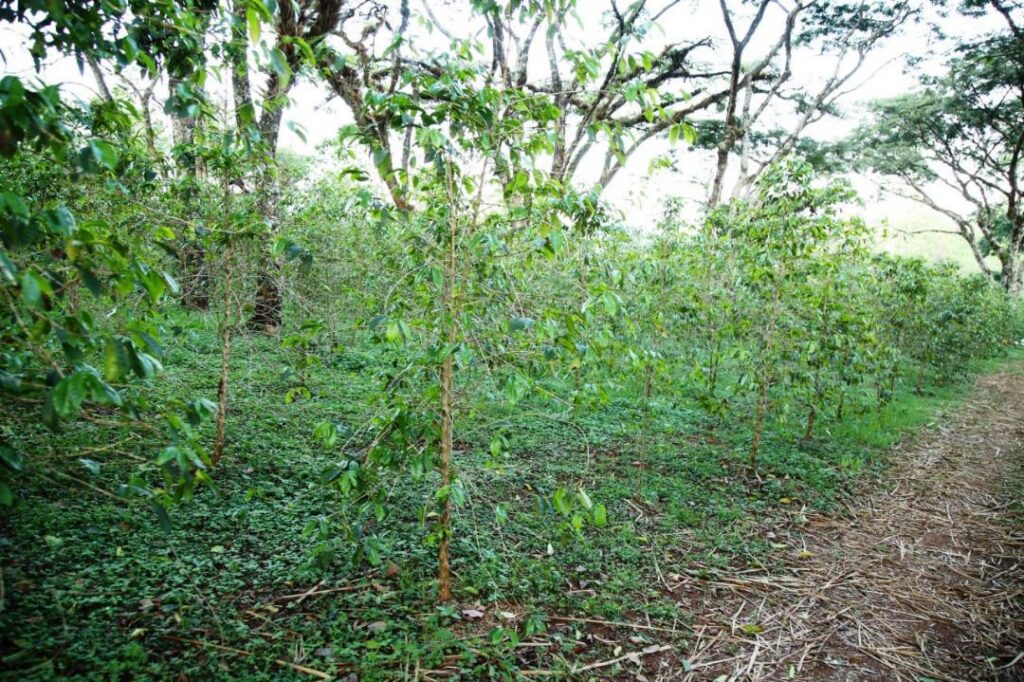
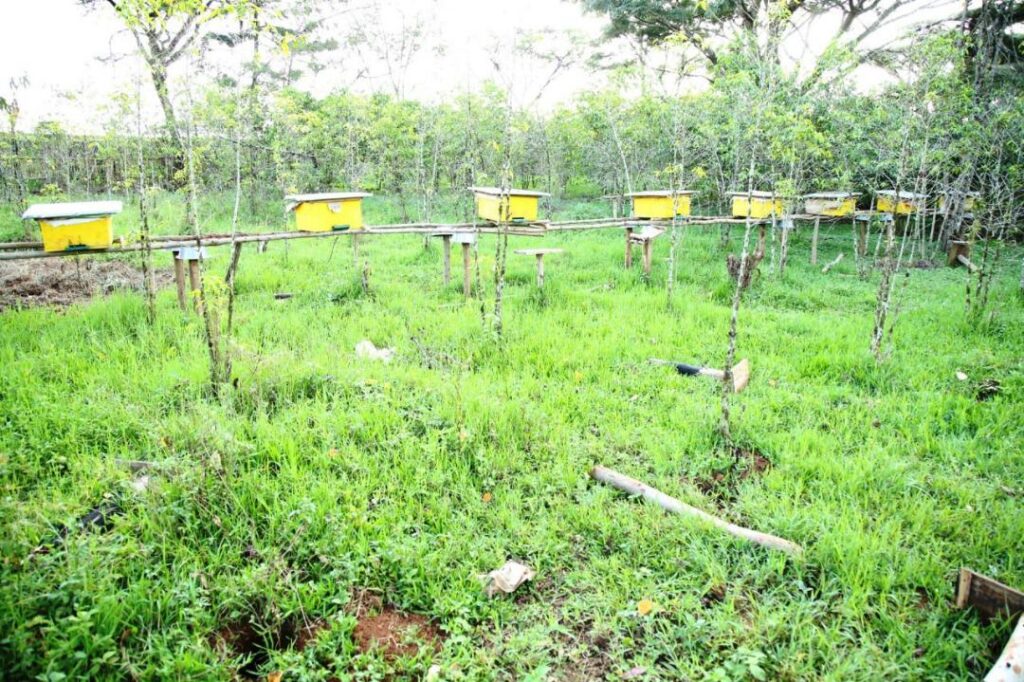
Site 3 :- Modern Fruit and Honey Production Center of Mr. Tofiq and His Family
Mr. Tofiq’s Dream: A Blossoming Future in Five Months
In the lush highlands of Ethiopia, just five months ago, a farmer named Mr. Tofiq along with his
dedicated family embarked on a bold journey to transform their ancestral land into a model of
sustainable agriculture and innovation. Today, their vision is taking root, both literally and
figuratively, on a thriving mixed farm spanning over two hectares.
At the heart of this green revolution is a carefully curated blend of fruit-bearing trees and crops:
avocado, papaya, banana, sunflower, and coffee, interplanted to maximize land efficiency and
biodiversity. Each plant plays a role in the farm’s ecosystem, with sunflowers attracting
pollinators and coffee providing shade-friendly ground coverage.
But Mr. Tofiq’s innovation didn’t stop there.
Recognizing the critical link between pollination and productivity, he established a modern
apiary with 180 advanced beehive boxes—creating one of the region’s most promising honey
production centers. The bees not only produce high-quality honey but also support crop yields
through natural pollination, showcasing the true power of agroecological synergy.
What sets this farm apart is its commitment to learning and community development. The site
doubles as a pollination demonstration and learning center, welcoming young farmers,
agricultural students, and researchers eager to understand integrated farming systems. Mr. Tofiq
and his family have become ambassadors of agro-innovation, generously sharing knowledge on
sustainable farming, climate-resilient practices, and the economic potential of fruit and honey
production.
This is not just a farm it’s a living classroom, a food forest, and a symbol of hope. In just five
months, Mr. Tofiq’s family has built more than a farm they’ve built a legacy.
“Mr. Tofiq and Family: Growing Fruits, Harvesting Honey, Cultivating the Future.”
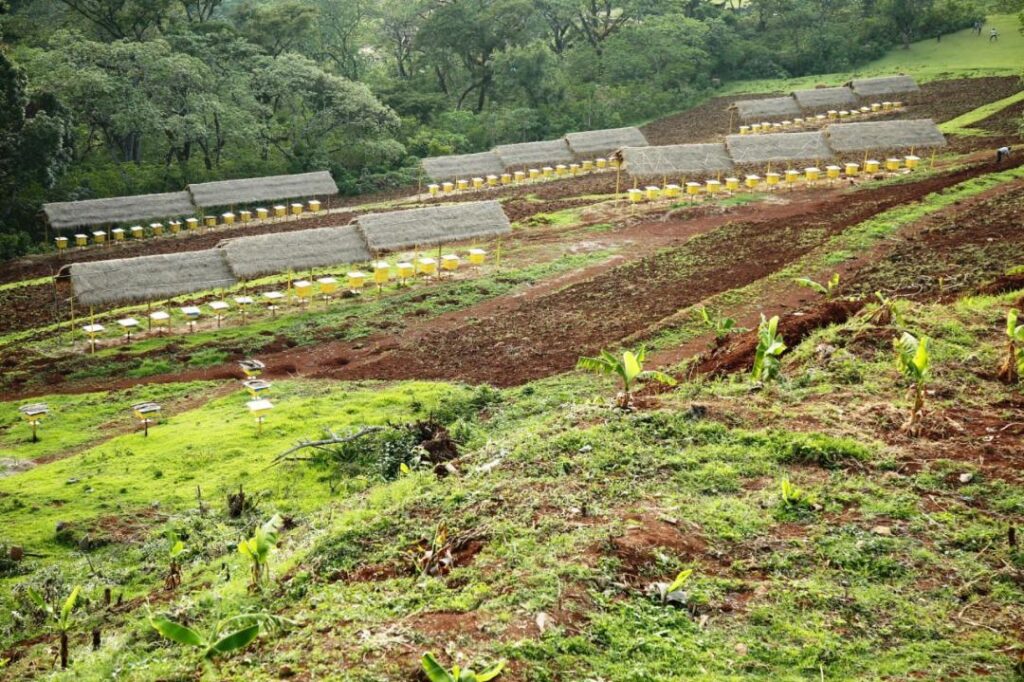
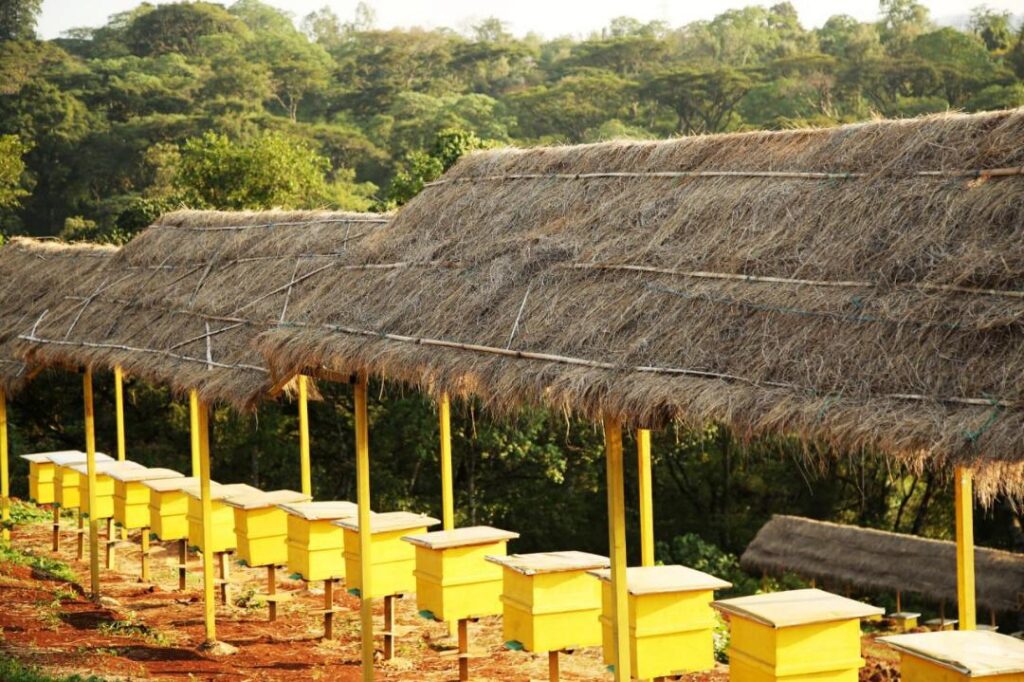
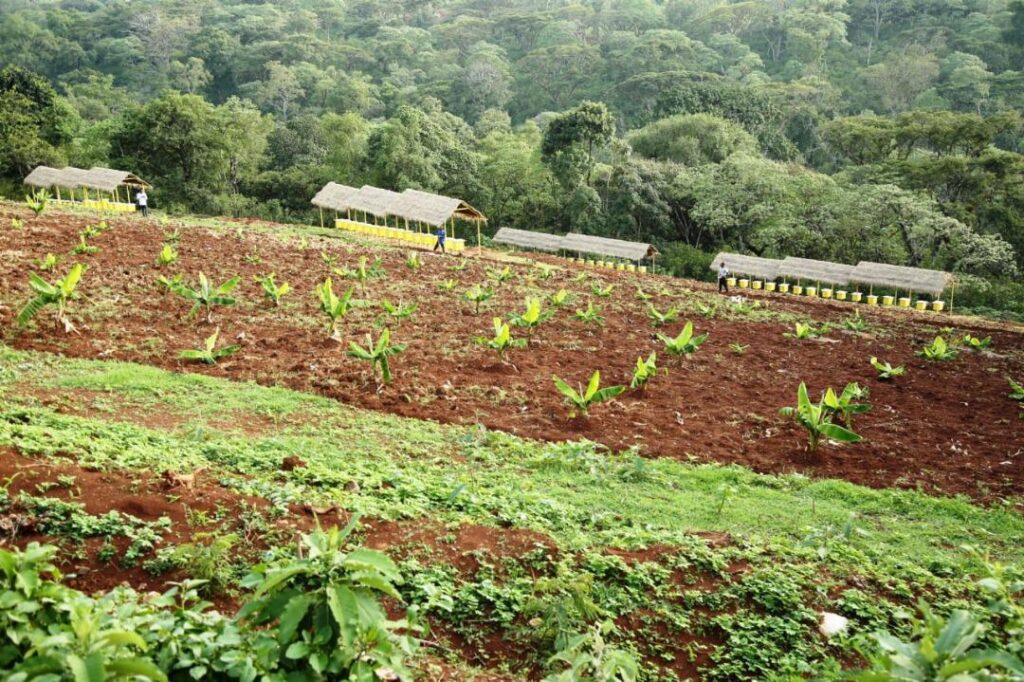
Frequently Asked Questions(FAQ)
Jimma, founded in 1830 by King Abba Jifaar I, is one of Ethiopia’s oldest cities. Known for its rich history and cultural heritage, Jimma is located in the heart of the southwestern region, strategically connecting surrounding cities. The area is famous for being the birthplace of coffee and is home to skilled artisans in textiles, metalwork, and woodworking, making it a key center for trade.
Jimma’s development has accelerated since 1995 E.C. when it gained administrative autonomy through Oromiya Regional State Decree No. 65/1995. This reform enabled the city to manage its own affairs, establish new sector offices, and foster economic growth.
With its strong potential in investment and tourism, Jimma is poised to play a significant role in sectors such as beekeeping and pollination, making it an ideal host for the Second International Forum for Action on Sustainable Beekeeping and Pollination.
.

Haile Resort – Jimma
Website =hailehotelsandresorts.com
All travellers except for citizens of Kenya and Djibouti are required to present e-Visa and valid passport to the immigration officer.
Print a copy of your approved e-visa: – Although not officially required, having a physical copy serves as a backup in case of electronic issues or discrepancies.
for Ethiopian e-Visa, please click here.
Taking place alongside World Bee Day 2025 the Forum serves as an opportunity to exchange experiences, showcase innovative beekeeping initiatives, inspire action for pollinator-friendly agriculture and global coordination and conservation efforts.
Second International forum for action on sustainable beekeeping and pollination 2025 will take place on May 20-22/2025 at Jimma (Ethiopia).
The Second International forum for beekeeping and pollination 2025 is open to anyone interested in agriculture, including farmers, researchers, policymakers, students. and industry professionals.
Attendees can expect engaging panel discussions, keynote speeches, networking opportunities. workshops, and exhibitions showcasing the latest advancements in international forum for beekeeping and pollination.
Registration for the international forum for beekeeping and pollination 2025 can be done through our online registration portal or by contacting our event development.
Please make sure to arrange for your airport pickup and drop off with the hotel you are booked with.
Your phone must be “unlocked” in order for it to work in Jimma. Make sure to check with your provider regarding roaming agreements, if you need to be in roaming mode in Ethiopia.
Ethio Telecom and Safaricom are the two providers in Ethiopia. You can buy local SIM cards in the arrival terminal or around the city.
The weather in Jimma is cold with rain with temperatures +23°C degree Celsius, it is recommended you carry a jacket and umbrella.
Jimma is located at a high altitude so please note that the mornings and evenings are cold. It is also important to drink lots of water during your stay.
If you are traveling from a country that might be susceptible to yellow fever, please do not forget your yellow fever card.
Water: avoid tap water – please drink only bottled water
Food: Avoid uncooked vegetables and raw meat
Ethiopian currency is denominated in “birr”. The exchange rate fluctuates slightly daily. Please make sure to ONLY exchange your international currency (USD, Euro, Pounds) at official banks and exchange centers. Do not use the unofficial street market, please. As a growing city, many restaurants and hotels accept mainly VISA and MasterCard as form of payments. However, many of the cafes and smaller restaurants only accept cash. There are many ATMs around the city that accept VISA and MasterCard – all withdrawals are ONLY in Birr.
Ethiopia is known for its hospitality and welcoming citizens. Jimma is fast becoming a metropolitan city. Do not walk late at night – please use the taxis or call for your taxi using ride hailing apps.
While you are at the conference, please ensure that you:
- Always wear your badge in a visible manner
- Do not leave bags and parcels unattended, including phones, laptops and tablets – they will disappear, unfortunately
- Do not bring unauthorized persons into the Conference
- Look after your valuable property
- Check that you have all your documents and personal items before you leave conference halls and meeting rooms
- Inform the event staff if you lose anything valuable